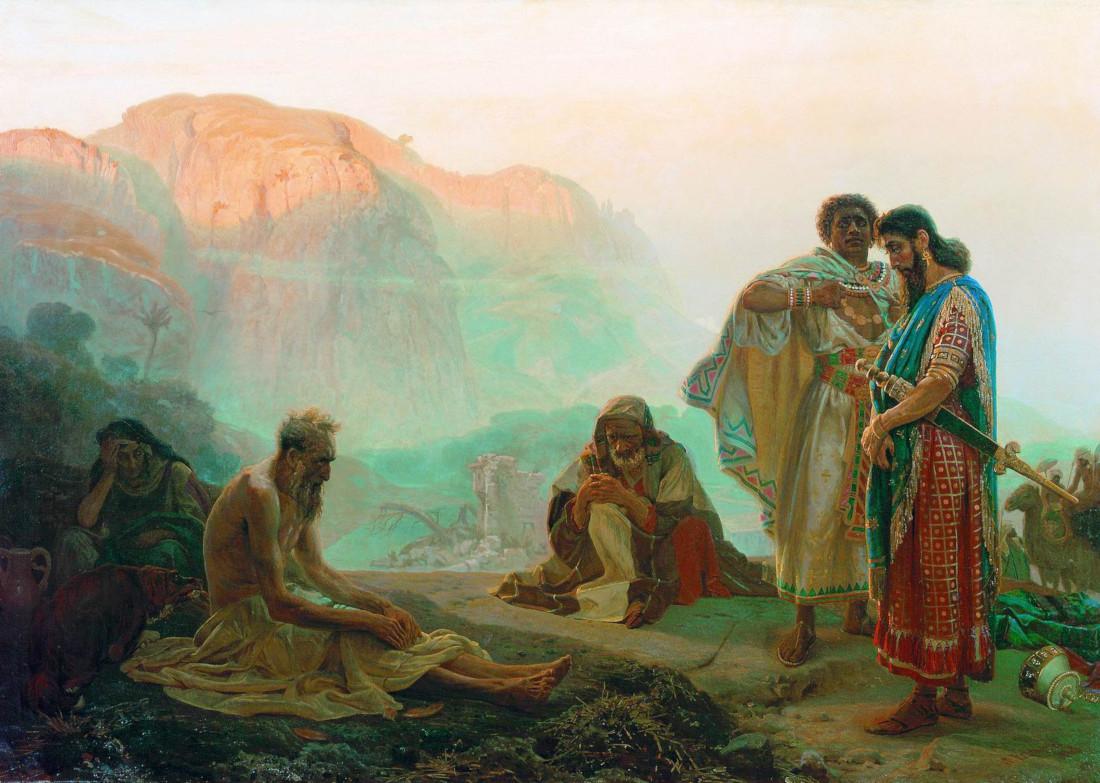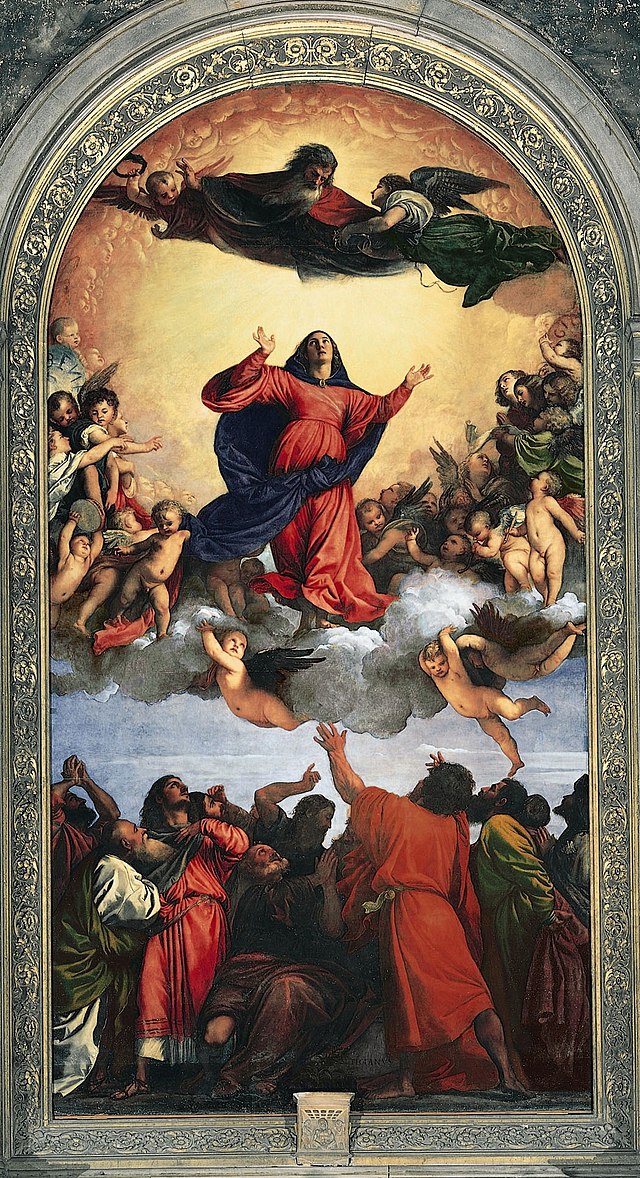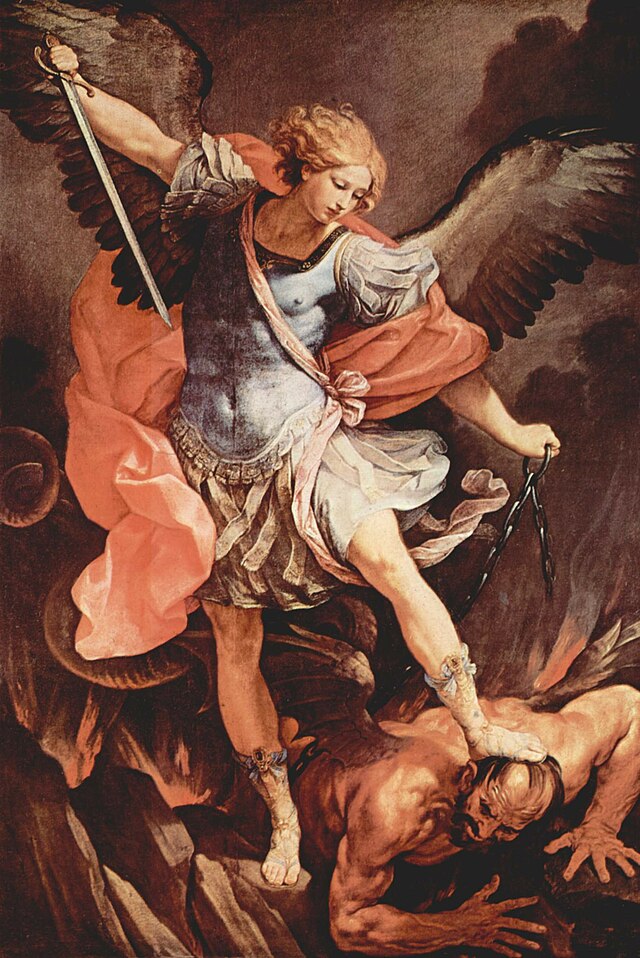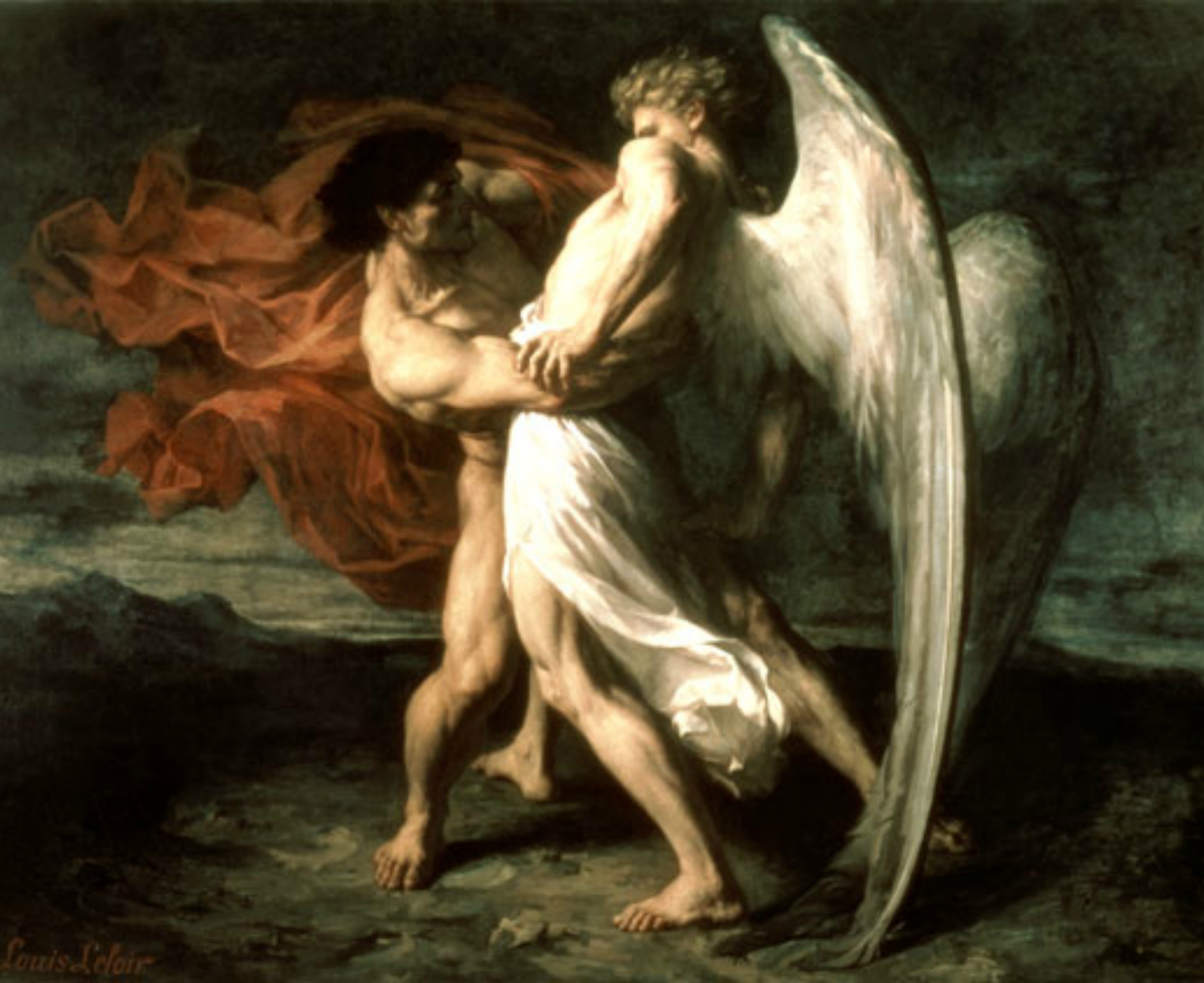
“Paul Writing His Epistles,” possibly even his Letter to the Romans. . .
This post is “Part II” of the Bible readings for Sunday, August 31. As always, you can see the full readings at The Lectionary Page, but here are some highlights and commentary.
As noted in On the readings for August 31 – Part I, the OT reading for August 31 is Exodus 3:1-15. The others are Psalm 105:1-6, 23-26, 45c, Romans 12:9-21, and Matthew 16:21-28.
Psalm 105 is a “two-parter,” a psalm so long it got divided in two. Among other things, the text is relevant to the “Curse of Ham,” which some people used to justify African Slavery, “back in the good old days.” See for example Curse of Ham – Wikipedia, the free encyclopedia:
[I]n later centuries, the narrative was interpreted by some Jews, Christians and Muslims as a curse of, and an explanation for, black skin, as well as slavery.
But Psalm 105:23 notes, “Israel came into Egypt, and Jacob became a sojourner in the land of Ham,” to wit: Egypt. Psalm 105:27 adds, of Moses and Aaron (see above), “They worked [God’s] signs among them, and portents in the land of Ham,” again referring to Egypt. Thus – according to a strict interpretation of the plain meaning of the Bible text – all those years it should have been Egyptians working in those cotton fields. (See also On “originalism”.)
More to the point, the International Bible Commentary summarized the theme of Psalm 105 as “God’s faithfulness to His promises,” and of verses 12-25 it added:
To the landless Patriarchs [of Israel], a handful of aliens and nomads among the various Canaanite states, the hope was an unattainable dream. But even then God was at work. . . He was in fact controlling nature and history according to His purposes. (E.A.)
Thus the mandate of Psalm 105:1, “Give thanks to the Lord and call upon His name; make known his deeds among the peoples.”
As to Romans 12:9-21, the IBC characterized its theme as “Love in action,” beginning with these words: “Let love be genuine; hate what is evil, hold fast to what is good; love one another with mutual affection; outdo one another in showing honor.”
In verse 14 – “Bless those who persecute you; bless and do not curse them” – Paul clearly “echoed his Master’s words” as set out in Matthew 5:14 and Luke 6:28. In the same way he noted, “never avenge yourselves, but leave room for the wrath of God; for it is written, ‘Vengeance is mine, I will repay, says the Lord.’” As for one allusion, see Proverbs 25:21-22:
If your enemy is hungry, give him bread to eat, and if he is thirsty, give him water to drink, for you will heap burning coals on his head, and the Lord will reward you.
In Matthew 16:21-28, “Jesus began to show his disciples that he must go to Jerusalem and undergo great suffering . . . and be killed, and on the third day be raised.” Later on He referred to Himself as the Son of Man, “an expression in the sayings of Jesus in Christian writings:”
“For the Son of Man is to come with his angels in the glory of his Father, and then he will repay everyone for what has been done. Truly I tell you, there are some standing here who will not taste death before they see the Son of Man coming in his kingdom.”
But according to Son of man (Christianity) – Wikipedia, the free encyclopedia, the meaning of the phrase is controversial; so much so that “after 150 years of debate no consensus on the issue has emerged among scholars.”
On the other hand, Isaac Asimov offered a simpler explanation, that this was a cautious, “metaphoric way” of Jesus referring to Himself as the long-awaited Messiah in the Roman province of Judea, and thus at a time and place when both “the religious and secular leaders would strike quickly at those they considered were falsely claiming to be the Messiah:”
Perhaps this was useful at times when it was dangerous to be too openly Messianic in one’s hopes. By speaking of the “son of man” one could indicate the Messiah to those who were in sympathy; but before a judge one might maintain that the phrase meant simply “man.”
Sometimes – it seems – it pays to be “as cunning as a serpent. . .”
– The Scribe

The upper image is courtesy of Epistle to the Romans – Wikipedia, the free encyclopedia, with the caption reading: “A 17th-century depiction of Paul Writing His Epistles. 16:22 indicates that Tertius acted as his amanuensis.” Romans 16:22 reads – in the New Living Translation – “I, Tertius, the one writing this letter for Paul, send my greetings, too, as one of the Lord’s followers.” (An amanuensis “is a person employed to write or type what another dictates,” or copy what’s been written by another, or refers to a person signing a document “on behalf of another under the latter’s authority.”) Wikipedia further indicated that Romans was “the longest of the Pauline epistles and is considered his ‘most important theological legacy.'”
See also Paul the Apostle – Wikipedia, the free encyclopedia, which noted that he is “generally considered one of the most important figures of the Apostolic Age. In the mid-30s to the mid-50s, he founded several churches in Asia Minor and Europe. Paul used his status as both a Jew and a Roman citizen to advantage in his ministry to both Jewish and Roman audiences. . . [H]is influence on Christian thought and practice has been characterized as being as ‘profound as it is pervasive.'”
The lower image is courtesy of Son of man (Christianity) – Wikipedia, the free encyclopedia. The full caption reads: “Christ, by Titian – (detail) 1553, oil on canvas, 68x62cm, Prado Museum Madrid.”
The phrase “cunning as a serpent” referred to Matthew 10:16, in which Jesus cautioned, “I am sending you out like sheep among wolves. So be as cunning as serpents and as innocent as doves” (in the International Standard Version of the Bible).









 Consider this a tribute to
Consider this a tribute to  That particular version of the list is from
That particular version of the list is from  Essential # 6. We strive to follow “
Essential # 6. We strive to follow “




 El Greco’s
El Greco’s 

